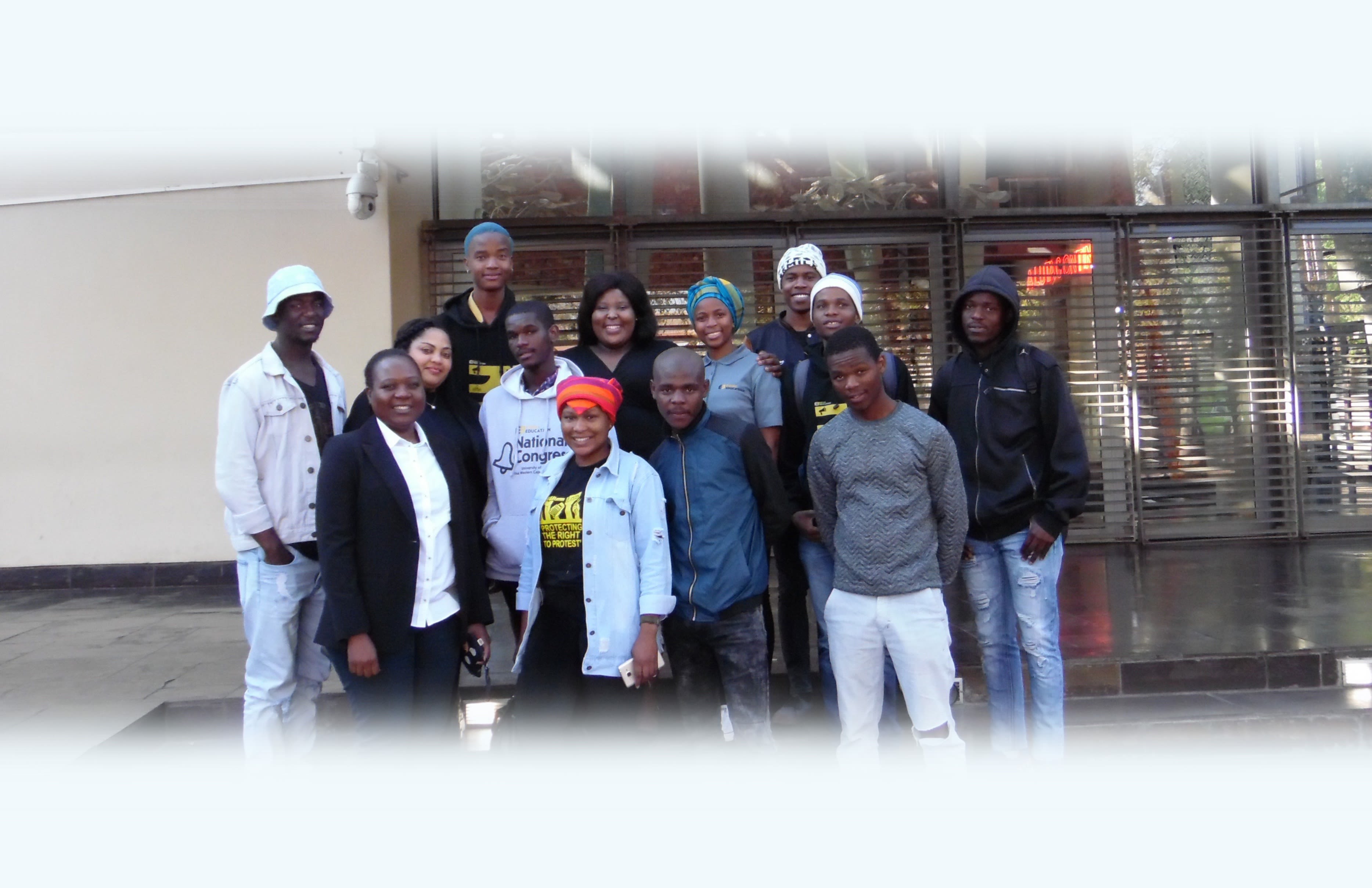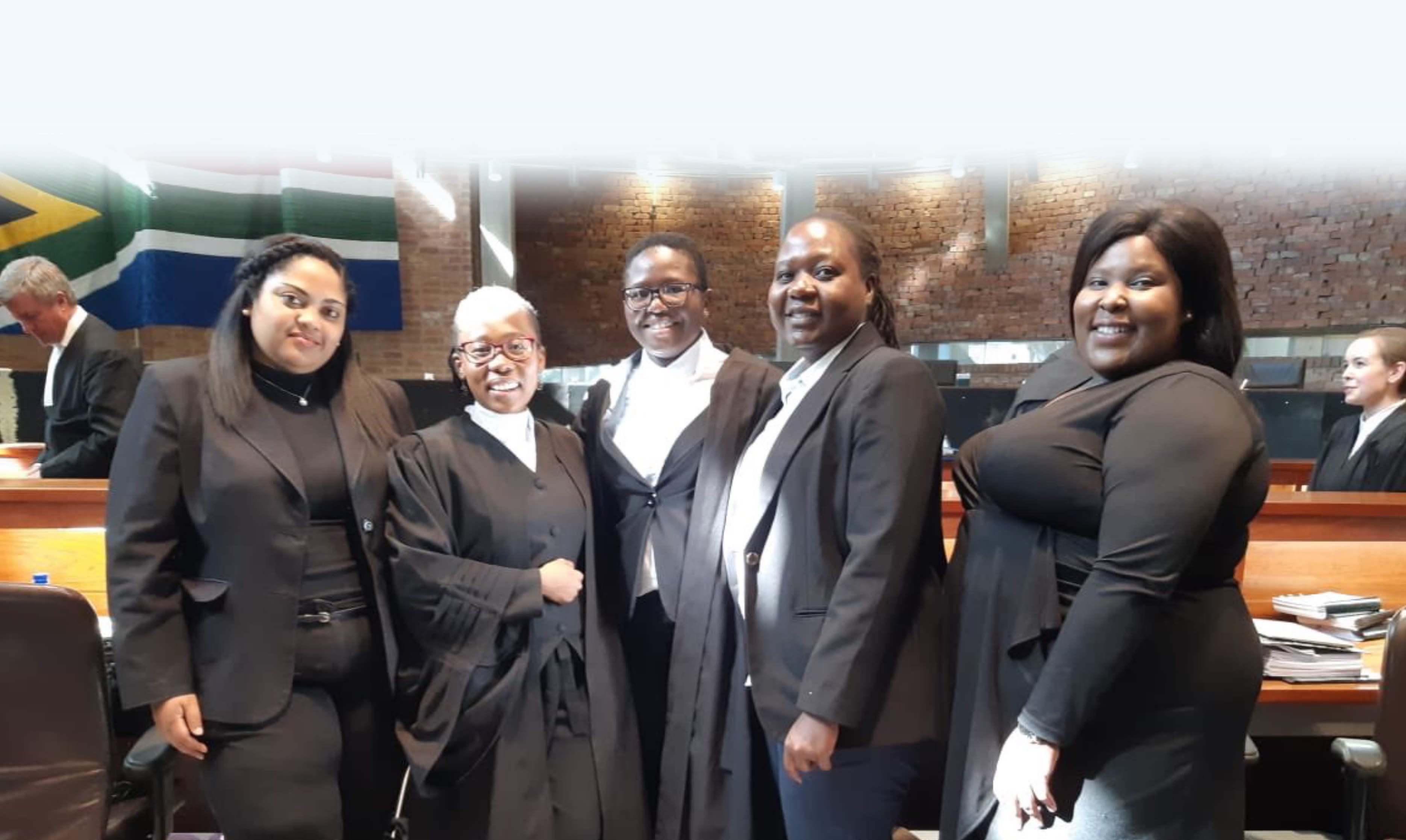Pila-sande Mkuzo
South Africa

Pila-sande Mkuzo, Bertha Justice Fellow based at EELC, is using her Fellowship to cultivate her skills as a human rights and social justice lawyer to ensure that private sector–run schools prioritize childrens’ right to education over profits.
Pila-sande Mkuzo is a Bertha Justice Fellow based at Equal Education Law Centre (EELC), whose movement lawyering aims to address systemic issues in the South African education system. Throughout the course of her Fellowship she has gained skills around critical thinking, professionalism, the litigation process and the importance of legal intervention as a tool to help protect human rights. The EELC staff collaborates closely with its sister activist organization Equal Education and many others within the national and international coalitions on advocacy and action for equal and quality education.
“It is important that I reflect on why I wanted to join the EELC. It was primarily to provide support and change to the lives of other learners who experience the same injustices that I did.”
Pila-sande Mkuzo, EELC
In 2019 Pila-sande provided support to senior lawyers at EELC who assisted the court in making its findings as schoolchildren’s parents challenged the independent, privately run Pridwin Preparatory School in Johannesburg. There had been a dispute between the parents and the school, and in 2016 the school cancelled the contracts without affording the parents and learners a hearing before the decision was taken, leaving two learners effectively expelled from school. Similar to many contracts used by privately run schools across South Africa, this one had clauses allowing the school to cancel the contract at any time and for any reason. The parents appealed at the High Court in 2017 and Supreme Court of Appeal in 2018. Both appeals were dismissed. In 2019 Pila-sande was part of the EELC team which, alongside the Centre for Child Law, collaborated on the case as the parents prepared to appeal to the Constitutional Court.

As part of the legal team at EELC, Pila- sande has been working on every step of the appeal process, including conducting legal research, drafting court papers, service and filing of legal papers, attending meetings with client and counsel and, finally, attending the hearing. As EELC had been a voice in the global advocacy for the right to education – which calls to develop principles to regulate private-sector involvement in education – Pila-sande produced a research note on the international legal framework on the right to basic education. As movement lawyers, the EELC team worked closely with activists from Equal Education while strategizing the legal arguments during the appeal. Having personal experience of private schools in South Africa, Pila-sande shared valuable insight and ideas that were integrated into the case preparation. The Bertha Justice Fellowship places an emphasis on developing as a movement lawyer; the power of being a Fellow is that this a unique time to gain practical experience in the field while also receiving mentorship and support.
EELC joined the parents who took the case to the Constitutional Court, as nationally and globally the right to education is regarded as a constitutional right, particularly because it promotes economic and social well-being. Pila-sande and the EELC team’s submissions highlighted the consequences of the growth of private fee-charging schools, demonstrating discrimination and inequalities for disadvantaged children and a system that favors the most economically advantaged – the impact of which is creating a fragmented education system and society.
In June 2020 the Constitutional Court declared the Pridwin Preparatory School’s decision to cancel the contract as invalid. The EELC team successfully framed its submissions on a child-centred approach, which was reflected in the Court ruling. The Court also stated that the school had several constitutional duties, including the obligation to not interrupt the learner’s right to education, and that private sector–run schools ought to act in the best interests of the child – including the right for the child to be heard. This judgment at the Constitutional Court means that the decision is binding for all private sector–run schools. This has a positive impact for children across South Africa and strengthens the international call for tackling privatization of basic rights provision that puts profits over people.
“The journey has been truly fulfilling and empowering. The Fellowship at EELC has given me a solid foundation in constitutional law, strategic litigation and the meaning of community and movement lawyering.”
Pila-sande Mkuzo, EELC

CREDITS
Photo 1: Pila-sande Mkuzo (middle, back) and attorneys from EELC with organizers for Equal Education. Image: EE Organizer
Photo 2: Pila-sande Mkuzo (far right) and EELC legal team at the South African Constitutional Court. Image: Ziphokazi Sisilana
Author: Shveta Shah, Program Director, Bertha Justice Initiative
Editorial Consultant: Karen Frances Eng
This story was originally published in the Bertha Fellows book and some of the information in this story may have changed since it was first published.


 Built with Shorthand
Built with Shorthand